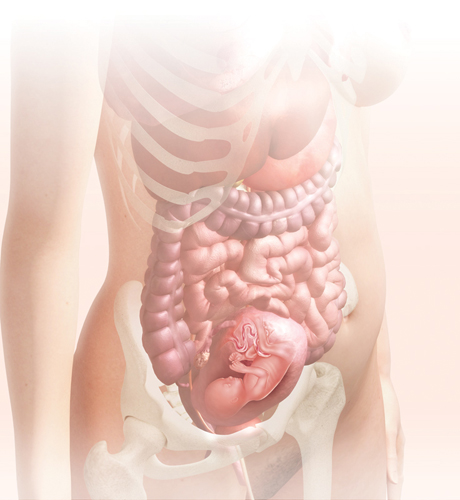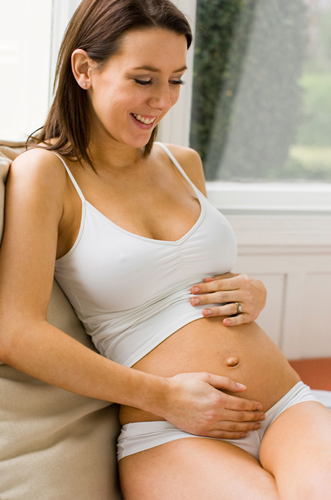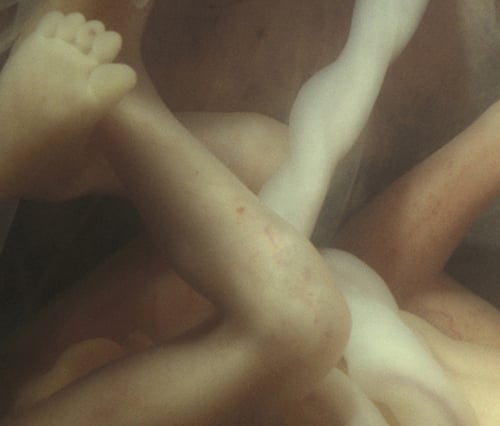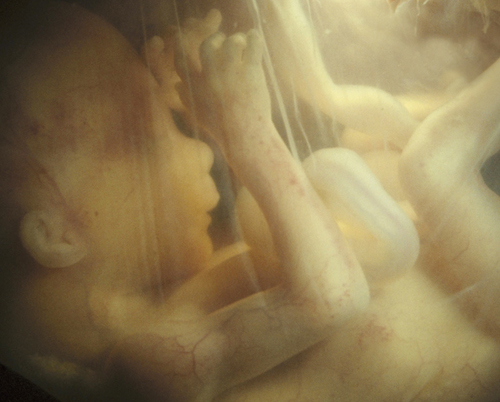Your 18th Week
Not all the weight you’re
gaining is your baby. In fact, most of the increase is because parts of
your body, such as your breasts, are getting bigger and your blood
volume is increasing. You might want to think about signing up for
prenatal classes now because they fill up quickly. They are a great
source of information, as well as a good way to make friends and compare
notes with other pregnant women.
NOTE
You’ll find you’re gaining weight week by week, which is perfectly normal

You are 17 Weeks and 1 Day 160 days to go…
Around this time, you may become aware of your baby moving, although for some women first movements are felt much later.
Although your baby is very active,
she’s not big enough for you to feel any but the strongest kicks on the
walls of your uterus. “Quickening” is the term used to describe these
first movements, which feel like tiny flutterings or bubbles in your
lower abdomen. You may not notice them or not realize that they are the
baby at first, since they feel similar to having gas.
If you’ve been pregnant
before, you will be more familiar with the sensation and able to
recognize it. First-time moms generally don’t feel movements until a bit
later, at about 18 to 20 weeks,
so don’t worry if you haven’t felt anything yet. The flutterings become
more persistent and definite over time, and there will eventually be
recognizable kicks and nudges.
Once you can feel the activity, you will become very conscious of them and may become aware of a pattern to them.
At around this time, you may begin to feel some slight sensations when your baby moves around.

… Dads
Being patient
It will be exciting when your partner tells you
she can feel the baby move and a great milestone of the pregnancy, but
when you touch your partner’s belly, you won’t feel anything at all.
Just be a little patient since there will be plenty of opportunities
later on in the pregnancy to feel the movements. Meanwhile, keep talking
to your baby—she can hear you!
That funny feeling
| Q: |
Was it gas, or did your baby move?
|
| A: |
The first time you notice your baby moving marks the start of a
new chapter in the bonding process, and it seems it has always been the
case, even in ancient times.
In many cultures,
until the advent of pregnancy tests, “quickening” was the first
conclusive evidence of pregnancy, and was viewed as the point at which
human life began.
According to
ancient Egyptian, Greek, American, and Indian beliefs, the first
movement marked the moment when the soul entered the fetus. Aboriginals
regard the location where the first quickening is felt as highly
significant for the baby.
|
Babies are rocked to sleep by their mother’s movements.
This is why you’re less
likely to feel your baby move when you’re active. You’re also likely to
be distracted yourself and miss some movement.
You are 17 Weeks and 2 Days 159 days to go…
The tiny embryo was once dwarfed by the placenta but now your baby has outgrown it and will continue to do so.
Your baby today
Here, the baby’s legs are in the typical crossed-legs position.
The right arm is on the right side of the image. The limbs and umbilical
cord appear to be in a tangle, but the umbilical cord is filled with a
jellylike fluid and does not become compressed.

In the early stages of pregnancy, the placenta grew at a far greater rate than your baby. Your baby has now caught up and from now on will be larger than the placenta.
The structure of
the placenta will change over the course of the next few weeks as the
second wave of cells move into the spiral arteries in the uterus . The placenta is currently at its thickest but as it continues to grow, albeit at a slower rate for a time, it thins out.
Your baby’s more rapid growth
means that at 2.5 oz (70 g) she is now heavier than the placenta and by
the time she is full term she will be six or seven times its weight.
Nutrients supplied across the placenta provide your baby with energy for
growth, but growth is in part regulated by her own insulin production
and insulin-like growth factors.
Although your baby
has relatively high concentrations of growth hormone, which is
responsible for growth after birth, this does not seem to play an
important role in her growth during pregnancy.
The baby is in a typical position,
curled with feet and elbows bent. The well-developed ear is still a
little low on the side of the head at this point, and the baby’s blood
vessels show up well.

… Health
Tackling heartburn
If you’re battling with the burning sensation and sour taste of heartburn, try these solutions:
Eat smaller meals, and ensure you chew your food well
Avoid foods that aggravate your symptoms, such as spicy, rich, and fatty dishes
Don’t smoke or drink alcohol
Drink milk
Wear loose-fitting clothing
Chew gum after eating, except for mint varieties
Remain upright after meals; bending can increase discomfort
Don’t eat 2 to 3 hours before going to bed
Raise the head of your bed by 6 in and lie on your left side.